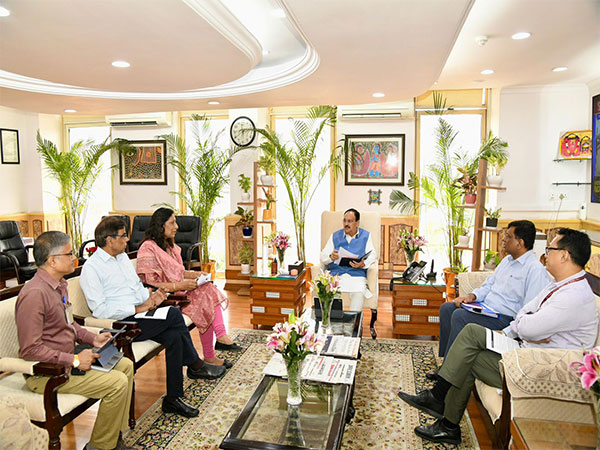New Delhi: In response to the World Health Organization’s (WHO) recent declaration of Monkeypox as a Public Health Emergency of International Concern (PHEIC) on August 14, 2024, Union Minister of Health & Family Welfare, Jagat Prakash Nadda, convened a high-level meeting today to review the situation and India’s preparedness.
As of now, there have been no reported cases of Monkeypox in India. However, the Health Ministry has decided to implement precautionary measures to ensure the country remains vigilant and prepared.
Key decisions made during the meeting include the following:
- Sensitization of Health Units: Health units at all airports, seaports, and ground crossings will be sensitized to monitor and detect potential cases of Monkeypox.
- Testing Laboratories: Thirty-two testing laboratories across India will be readied to swiftly diagnose any suspected cases.
- Health Facilities Readiness: Hospitals and healthcare facilities will be equipped to detect, isolate, and manage any Monkeypox cases that may arise.
The meeting, chaired by the Union Health Minister, emphasized that Monkeypox infections are usually self-limiting, lasting between 2-4 weeks, with patients generally recovering with supportive care. Transmission of the virus requires prolonged close contact with an infected person, typically through the sexual route, direct contact with body fluids or lesion fluid, or contact with contaminated clothing or linen.
The WHO had previously declared Monkeypox as a PHEIC in July 2022 before revoking it in May 2023. Since the 2022 declaration, WHO has reported 99,176 cases and 208 deaths globally from 116 countries. In India, 30 cases were detected, with the last case reported in March 2024.
A Joint Monitoring Group Meeting chaired by the Director General of Health Services was held on August 16, 2024, to further assess the situation. The meeting included experts from the National Centre for Disease Control (NCDC), WHO, Indian Council of Medical Research (ICMR), and other key health organizations. While the possibility of a few imported cases in the coming weeks is not ruled out, experts assessed that the risk of a large outbreak with sustained transmission is currently low for India.





